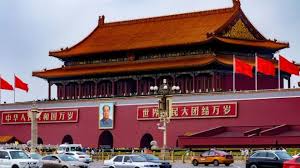China, Belarus vow to further boost ties as true friends, good partners

Minsk: Chinese Premier Li Qiang has voiced China’s readiness to work with Belarus to stay unwaveringly as each other’s true friend and good partner, and maintain the sound and steady development of bilateral relations at a high level.
Li made the remarks on Thursday while holding talks with Belarusian Prime Minister Roman Golovchenko.
Noting that China and Belarus enjoy a time-honored traditional friendship, Li said that under the strategic guidance of Chinese President Xi Jinping and Belarusian President Alexander Lukashenko, the China-Belarus all-weather comprehensive strategic partnership has been developing in depth.
China is willing to give full play to the role of the intergovernmental cooperation committee between the two countries, strengthen the docking of development strategies, jointly promote high quality Belt and Road cooperation, further tap the cooperation potential in trade and investment, digital economy and green development, and expand people-to-people exchanges in education, culture and tourism, Li said.
In July, Belarus was formally accepted as the 10th member state of the Shanghai Cooperation Organization (SCO) at the 24th Meeting of the Council of Heads of State of the SCO.
Li said China is willing to strengthen communication and cooperation with Belarus in the United Nations, the SCO and other multilateral mechanisms, actively implement the three global initiatives, promote the practice of ture multilateralism, and jointly build a community with a shared future for mankind.
Golovchenko also expressed Belarus’s willingness to be a good friend and partner of China, adding Belarus is ready to work with China to implement the important consensus reached by the two heads of state, strengthen exchanges at all levels, expand practical cooperation in various fields under the framework of the Belt and Road Initiative, and continuously enrich the connotation of the all-weather comprehensive strategic partnership.
Li and Golovchenko jointly announced the official launch of the China-Belarus years of science and technology innovation from 2024 to 2025 and the establishment of the China-Belarus Basic Science Research Center and the Chinese Book Center at the National Library of Belarus.
Following the talks, the two leaders signed a joint communique between the two governments, witnessed the signing of a number of bilateral cooperation documents on Belt and Road cooperation, service trade and investment, green development, science and technology, culture and local affairs.
Chinese Premier Li Qiang meets with Belarusian President Alexander Lukashenko at the Palace of Independence in Minsk, Belarus, Aug. 22, 2024. (Xinhua/Rao Aimin)
Li also met with Lukashenko here on Thursday, noting that the two heads of state met in Astana this July and made strategic arrangements on deepening bilateral relations.
During his meeting with Lukashenko in July, Xi said this year had witnessed close communication between the two countries at all levels and effective implementation of the consensus reached between the two sides.
Xi voiced confidence that China-Belarus relations will continue to develop healthily and with great strides under joint efforts of both countries.
During Li’s meeting with Lukashenko, both sides voiced readiness to deepen cooperation and push for the high-level development of the China-Belarus all-weather comprehensive strategic partnership.
In the joint communique issued Thursday, the two sides expressed readiness to give full play to the huge potential of cooperation in agriculture and to strengthen investment cooperation in this sector. They also agreed to expand access to the Chinese market for agricultural and food products and to encourage their enterprises to participate in exhibitions and events held by the two countries.
Additionally, the two sides agreed to strengthen cooperation in the China-Europe Railway Express, set up an inter-governmental cooperation mechanism on the service, promote infrastructure connectivity, and jointly ensure the safety of the China-Europe freight train transport corridor.





